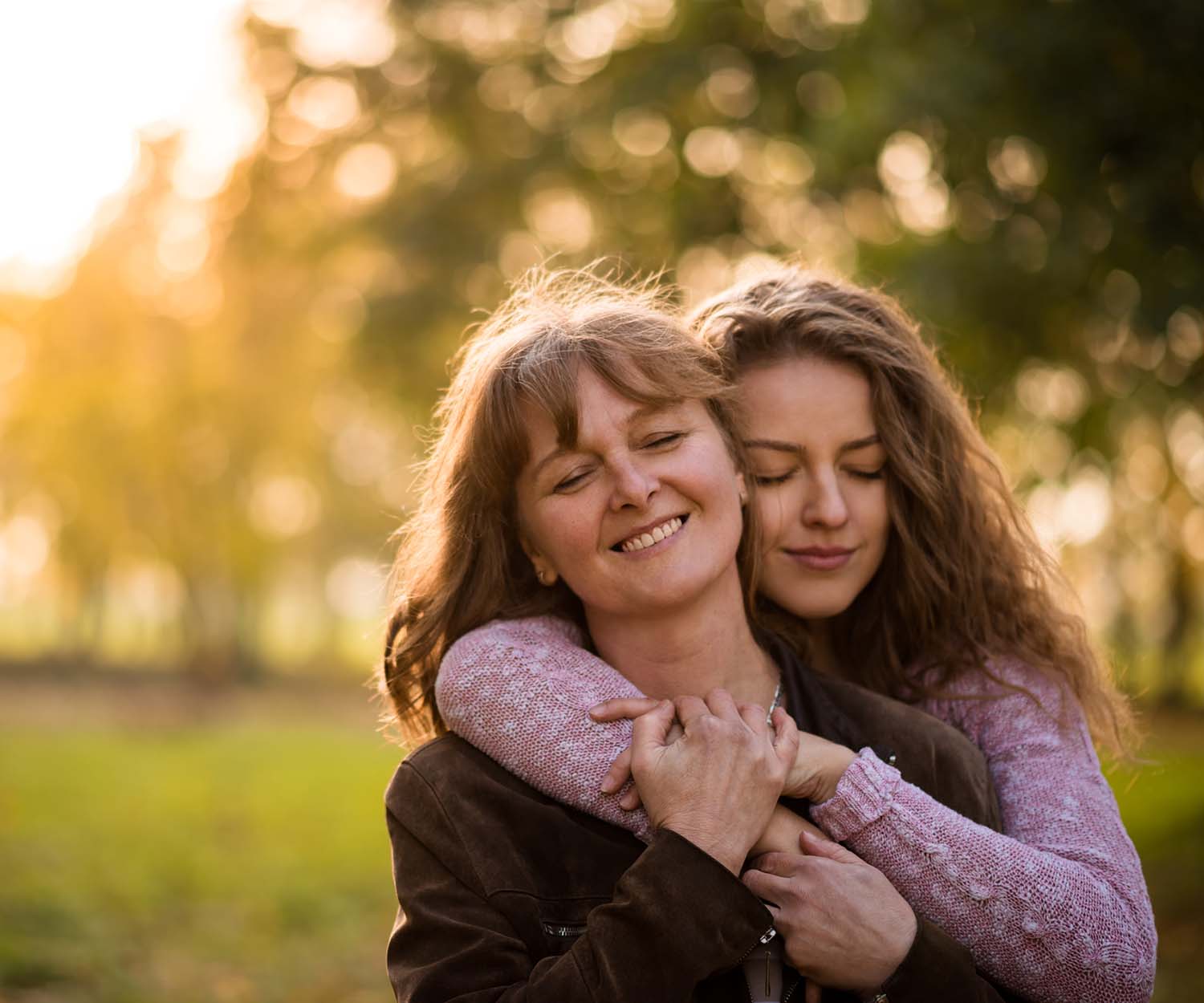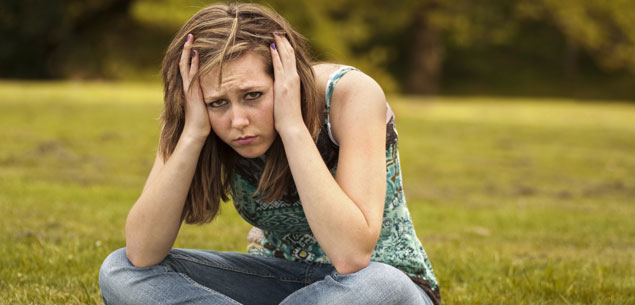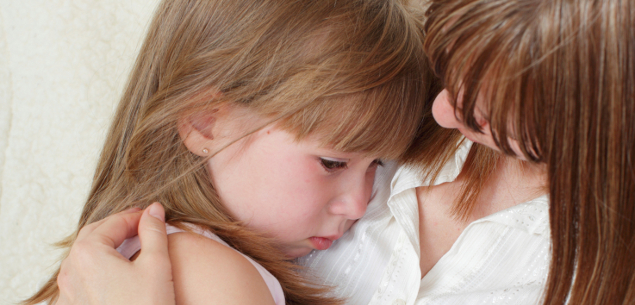For many years I hated Mother’s Day. I had lost my mum at 15 and, after that, each year when the promotions and advertising started up again I would get angry and resentful towards all those who had mothers to buy cards and flowers for.
Of all the awful experiences I have been through in my life – and there have been a few in my 47 years – losing Mum at such a young age was, hands-down, the most devastating.
Mum had been the rock of our family, the one who had held everything together, and when she died, aged 43, it felt like our whole world slipped into a deep, dark abyss.
Dad was bipolar, and barely keeping his head above water. And at that time – the 1980s – there was still very much that widely-held perception that kids were resilient and just bounced back.
So the focus was on Dad, making sure he was okay, everyone asking if he was okay. My 13-year-old brother and I were broken, and it’s only through the therapy that I’ve had since that I’ve come to realise we could have been helped more.
My friend always said, ‘you lost your mum when you needed her most’.
Having said that, we did pretty well at doing what we needed to do to survive.

Getty Images
We still got up every morning, because the harshest lesson we learned was that despite how low we felt, the sun still came up every day and people still went about their daily lives.
We spent a lot of time with our friends. As teens, we gravitated towards our peers and simply being around them was healing. It made me feel like I belonged to a tribe.
And, in my case, I wrote letters to Mum, which I kept up for about a year. I didn’t know it at the time, but research has shown that keeping diaries or writing letters can be hugely beneficial in helping people move through grief.
I did grow up angry, though. Grief counsellor Val Leveson from The Grief Centre explains, “Usually under anger is either fear or deep sadness. Anger is what we call a cover emotion, a replacement for what the real emotions are because the real emotions are too unbearable to deal with.”
Cover emotions serve us for a time but we eventually learn that lashing out is not helpful in our interactions with others. That’s, again, where therapy can come into its own because you can revisit your grief in a gentle way and develop new strategies to connect with people.
One thing which might have helped tremendously, and which we didn’t get, was the opportunity to connect with other kids who had lost their parents young too. My brother and I were completely on our own, with no one to talk to who truly understood how we felt.

Getty Images
Mum had died in a car accident, so her death was sudden and brutal and unexpected, and it happened on Christmas Eve, which just made it feel doubly unfair.
I’d been with her at the time; just moments before the accident, as we got into the car, we’d been smiling at one another. I’d thought how happy she looked, and had had this overwhelming urge to hug her. But I didn’t because I’d just smoked a cigarette and didn’t want her to smell it on me.
That became my biggest regret – that one last hug that I never took.
I also carried the guilt of having given her a really hard time in her last year of life.
At 14 I’d been stroppy, and the day she died had marked the first day in a long time that we’d gone shopping together and shared a lovely morning.
If I’d known it was coming I would have been a different daughter.
It has only been through becoming a mother that I came to understand that, despite my stroppiness, Mum would have known I loved her, and she wouldn’t have loved me any less for it either.
Of all the things that have helped me move through my grief, by far the most healing has been in becoming a parent myself.

Karyn (centre) with her three children, Greer (left), Amy and Mikey
“When you become a parent, memories resurface of how your mum was as a parent,” Val explains, “and you realise that in some ways your mum is still a part of you, that in some ways she’s still there.
“In a really visceral kind of way you remember the nursery rhymes your mother used to tell you or the books she might have read to you… sayings that she had, and that almost brings her back because you’re using her parenting in how you parent.
“We talk about what we call the continuing bond, so this would be part of the continuing bond, of remembering your mum in lovely ways – even remembering some of her harsh words and being able to say to yourself, ‘oh yeah that was Mum’.
“Your kids are here because you’re here and you wouldn’t be here if your mother had never lived, so there is a bond between those generations. And if you think in terms of the Māori culture and you talk about whakapapa, meaning ‘thread’ or line of descent… your mother’s part of that thread that connects the generations.”
Two years ago my oldest daughter passed the age I was when Mum died, then a year later her younger sister followed, and it felt like I’d gotten them past the gate.
I’m in unknown territory now, parenting teens older than 15, but it already feels like we’ve ‘made it’ and we have lovely, strong relationships.
I just have to get my 10-year-old son through now, then they will all be ‘safe’.

Karyn and her mum, Diane.
Research has shown that when someone who lost a parent young has a child that reaches the same age they were when their parent died, their sense of loss hits them hard because they can see how dreadful it would be for their child to lose them at that age… then realise they went through that themselves.
This I have found to be true. I look at my children and they still seem so vulnerable.
Reaching the age your parent was when they died is confronting too. I also found this to be true.
Four years ago my father passed, but this time the grief felt kinder. Dad had lived into his seventies, formed lovely relationships with his grandchildren – my children – and had a good life. We didn’t feel robbed, and took great comfort in our belief that Dad could be with Mum again. He had never stopped missing her.
And so while losing someone else close to you can trigger the grief you felt when your first parent died, grieving for Dad I only found healing.
Dad had established this lovely tradition of sending me scorched almonds every Mother’s Day to thank me for looking after him in Mum’s absence. Now I buy them for myself. It has become a way of remembering both my parents on Mother’s Day.
One of the biggest mistakes you can make is to ignore the days you know will trigger grief, Val says.
“Whether it’s Mother’s Day, a birthday, their day of death, Christmas… Mark it, acknowledge it because avoiding does the opposite of what’s helpful.”
On Sunday I will light a candle in remembrance of Mum and for that day I will feel like she’s with me.
I’ll also relish the half-cold cup of tea in bed and handmade cards that I’ll get from my kids. The thread of life through the generations continues.
How to support a teenager who has lost a parent
Involve them in the rituals surrounding their parent’s death – give them a say in decisions made about the funeral, for example.
Show them respect and acknowledge their loss. Let them know you are there.
Help them to find peer groups who have had similar experiences. The Cancer Foundation runs groups and camps for chidren who have lost parents through cancer, for example.
Support them to find a creative outlet to express their emotions – writing, painting/drawing, dance, music.
Counselling may help them, depending on their age.
Understand that grief is messy. It does not, as previously thought, fall into neat stages that you move through until you’re ‘over it’. It will always be there, and while it softens with time, it can be triggered by many, many things.
Step up and support them to continue the interests that the parent they lost supported them in. My mum had always loved the fact I played the violin but after she died I gave up. I was one year away from reaching grade 8. I lost that part of my life too.


